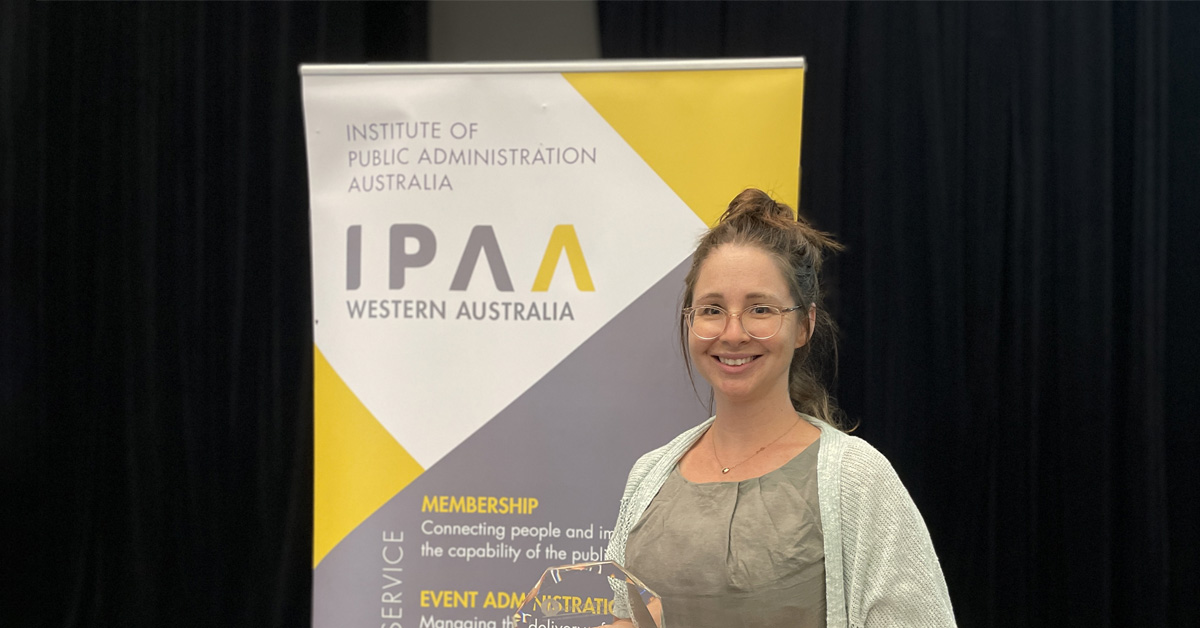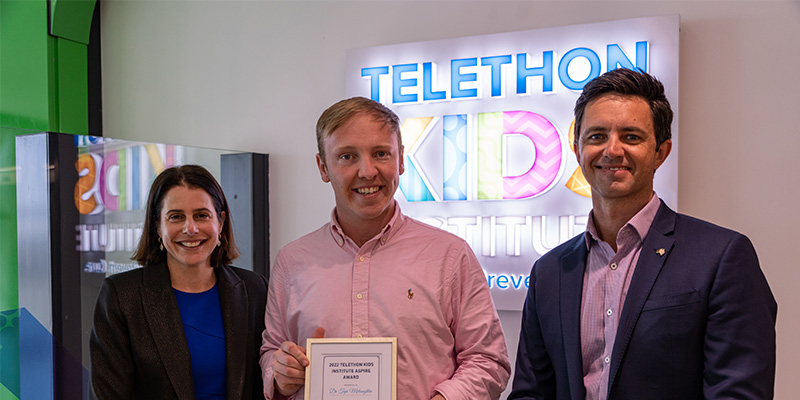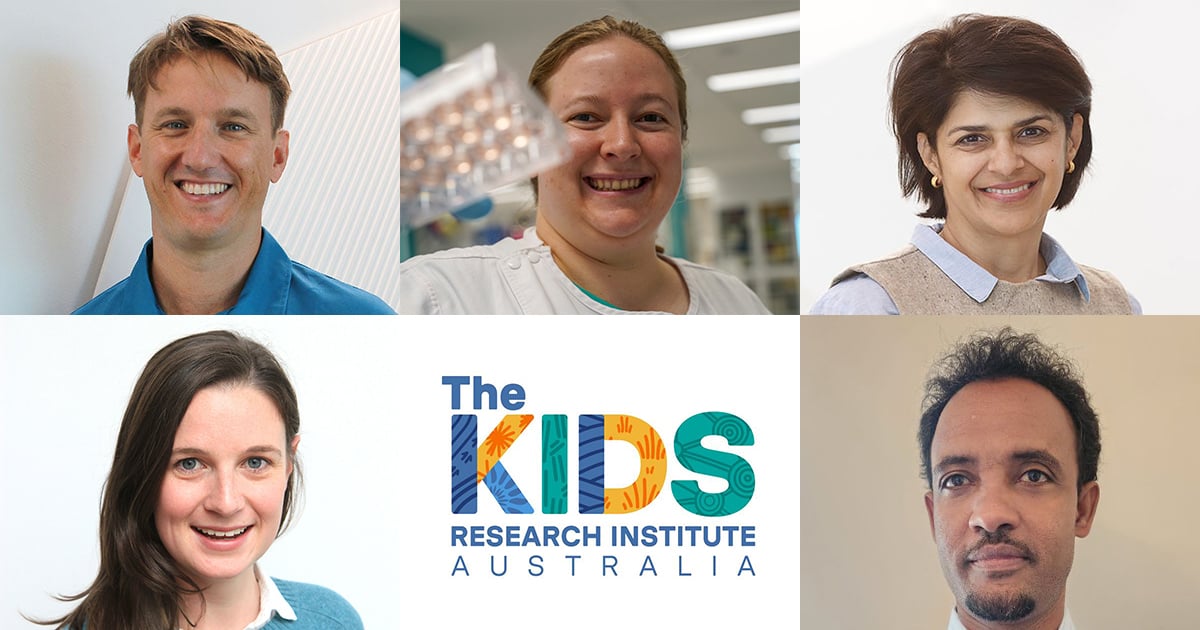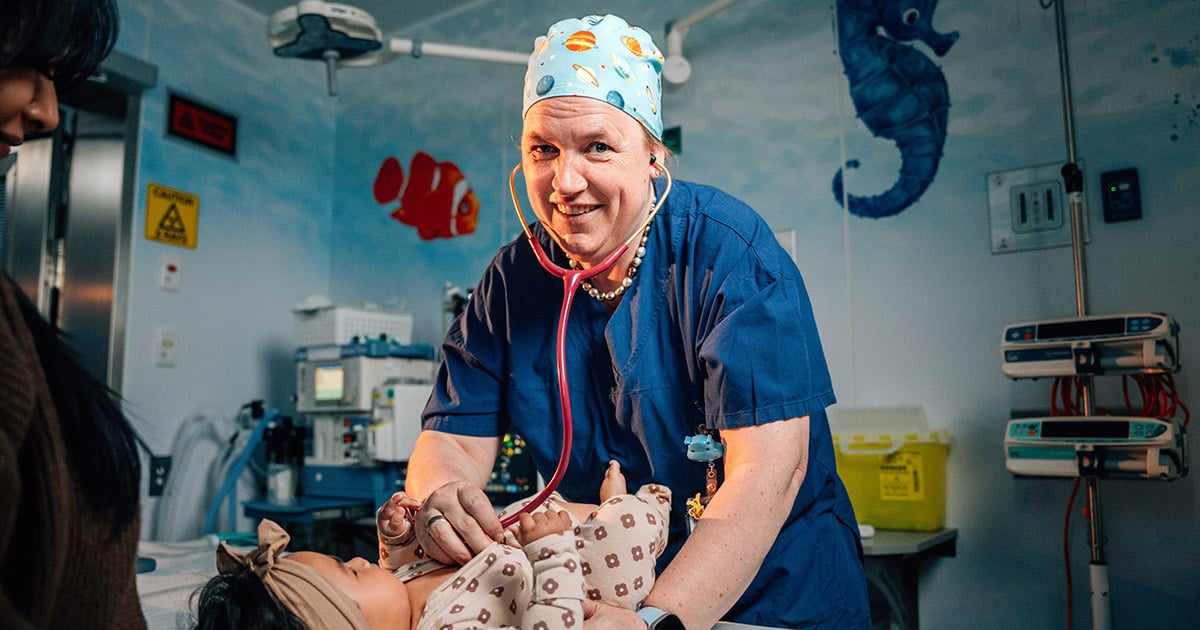Search

News & Events
Award for Sun Safe app developed with teensThe Kids Research Institute Australia researchers who worked with young people to develop an app designed to help teenagers stay safe in the sun have been named joint winners of a new award for ‘Best Practice in Children’s Consultation’.

News & Events
Raine Foundation grants support exciting projects in childhood cancer and newborn infectionsTwo The Kids Research Institute Australia researchers have been awarded prestigious grants from the Raine Medical Research Foundation for projects in childhood cancer and newborn infection control.

News & Events
Flying the flag for WA research thanks to Business Events Aspire AwardsDr Matthew ‘Tepi’ Mclaughlin is the 2022 The Kids Research Institute Australia Aspire Award winner - coordinated by Western Australia’s peak body for business events, Business Events Perth.

News & Events
Hon. Ben Wyatt to join board of The Kids Research Institute AustraliaFormer West Australian Treasurer, Hon Ben Wyatt, has accepted a position on the Board of WA’s leading medical research organisation, The Kids Research Institute Australia.

News & Events
Wal-yan researchers to participate at scientific meeting for leaders in lung health and respiratory medicineMore than 15 researchers from the Wal-yan Respiratory Research Centre will head to the Gold Coast this weekend to take part in at The Thoracic Society of Australia and New Zealand and The Australia and New Zealand Society of Respiratory Science (TSANZSRS) Annual Scientific Meeting (ASM).

News & Events
Wal-yan researchers to present at largest respiratory meeting in the worldA large contingent of researchers from the Wal-yan Respiratory Research Centre are heading to Spain in September to participate in the European Respiratory Society (ERS) International Congress – the largest respiratory meeting in the world.

News & Events
Sophisticated new modelling suggests keeping mask mandate could prevent 147,000 COVID-19 casesWA’s current Omicron COVID-19 outbreak could jump by 147,000 cases if mask mandates are abandoned before the Easter long weekend, according to sophisticated new modelling.

News & Events
Major funding boost accelerates fight against malariaResearch to eliminate one of the world’s deadliest diseases – malaria – will be accelerated thanks to a USD $4.7 million grant from the Gates Foundation for scientists at The Kids Research Institute Australia and The University of Western Australia (UWA).

News & Events
WA Near Miss Awards drive critical research forwardFive researchers from The Kids Research Institute Australia have secured vital funding support through the WA Near Miss Awards, allowing them to continue innovative health projects that narrowly missed out on national funding.

News & Events
Professor Britta Regli-von Ungern-Sternberg awarded 2025 Jian Zou MedalCongratulations to Professor Britta Regli-von Ungern-Sternberg, who was today recognised as one of Australia’s rising leaders in health and medical sciences upon being awarded the Australian Academy of Health and Medical Sciences 2025 Jian Zou Medal.
